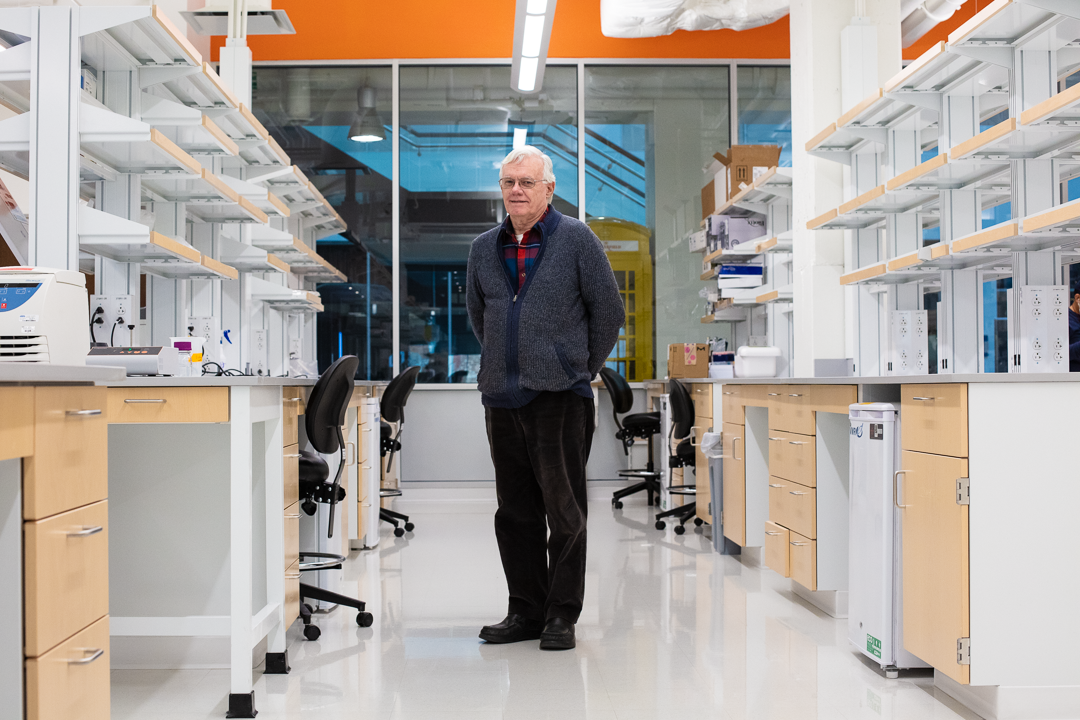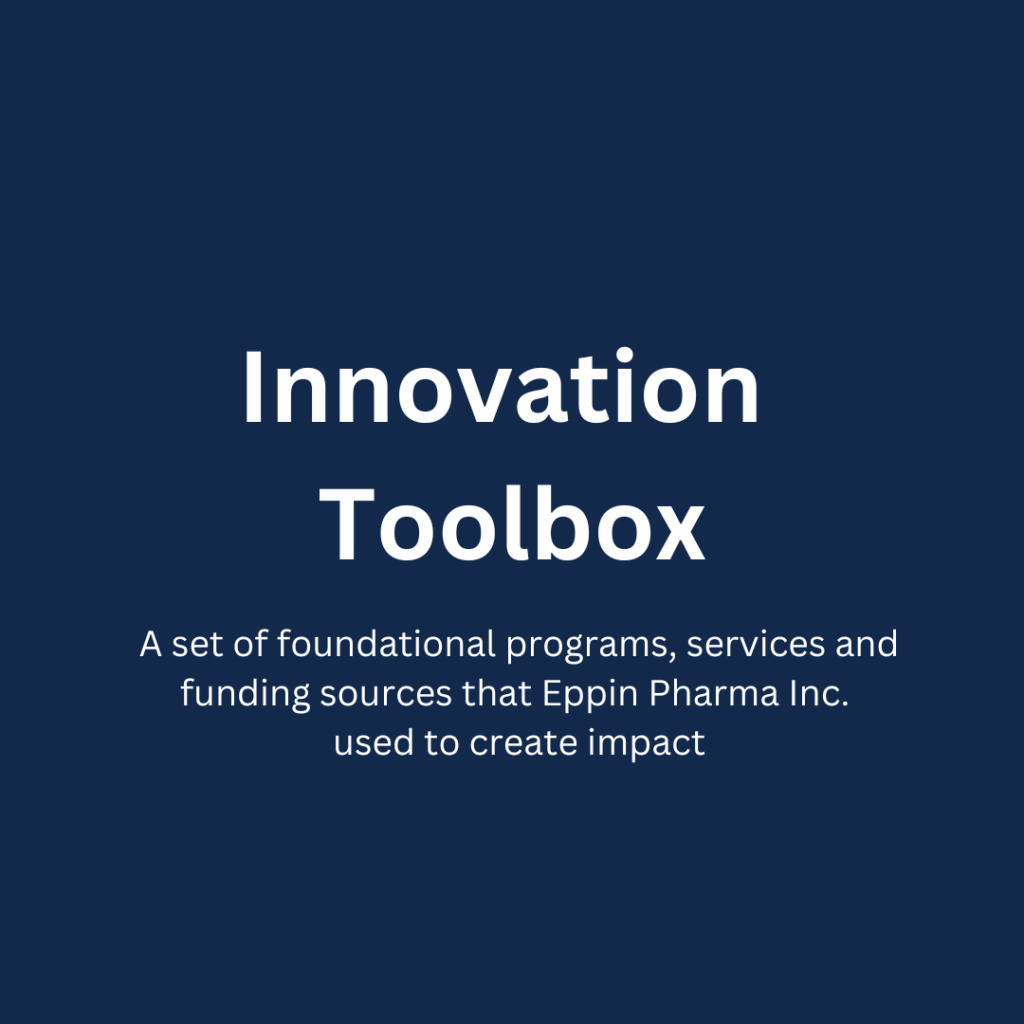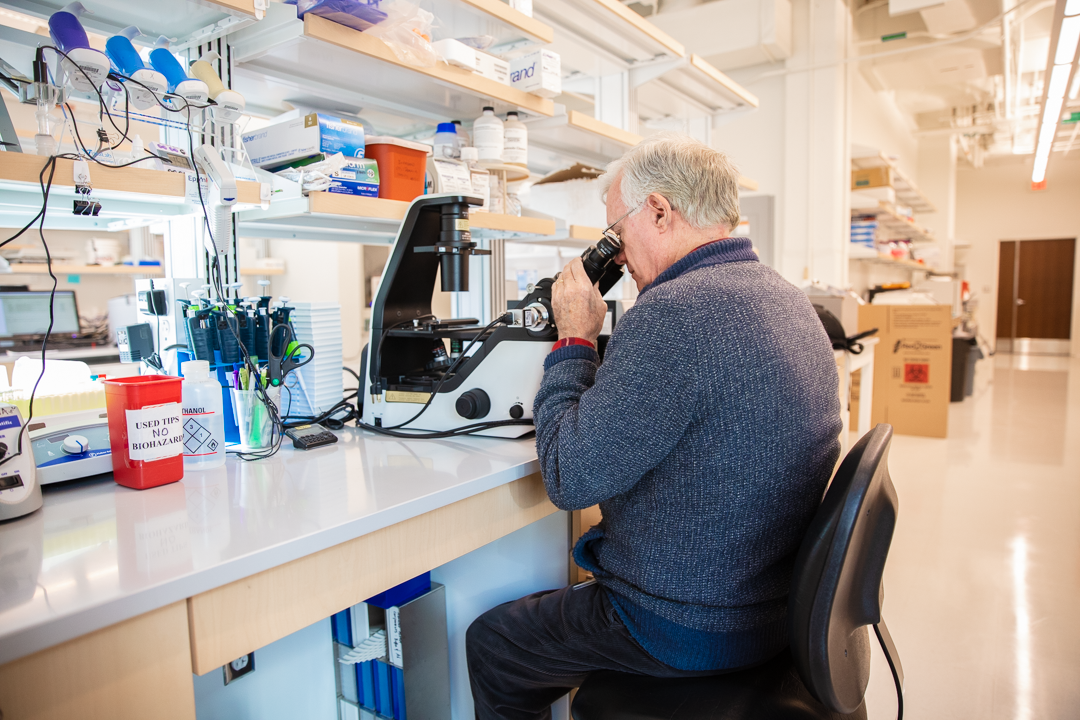

Eppin Pharma Inc, a startup founded by a former UNC-Chapel Hill faculty member, is developing a non-hormonal oral male contraceptive pill that has the potential to ease the economic, social and personal toll of unplanned pregnancies—and bring greater equity and flexibility to family planning.

The road to the commercial contraceptive market is a “constant battle,” admits Dr. Michael O’Rand. For nearly a decade, O’Rand’s company Eppin Pharma Inc has been traveling the long and expensive path of developing a drug that has the potential to completely transform family planning: a male birth control pill. “It costs hundreds of millions of dollars to get a drug to market,” said O’Rand. “As you go down the rabbit hole of developing a contraceptive, it gets darker and darker, and the only thing that brings light is money.” Yet, with compelling scientific results, a record of grant-funding success—and the promise of an easy-to-take pill that could reduce the social, economic and personal hardships that unplanned pregnancies create—O’Rand has set his sights on the bright possibilities ahead: a pill-sized innovation that can make an enormous human and economic impact.
“The high prevalence of unintended pregnancies is a significant problem to be solved, and one way to do that is to make family planning a more equal situation in which both men and women can participate,” said O’Rand, a retired professor from the UNC School of Medicine who launched Eppin Pharma in 2014 based on research conducted in his university lab. The problem described by O’Rand, now president and CEO of Eppin Pharma, is a pervasive one.
According to Center for Disease Control’s National Center for Health Statistics, more than 5.5 million unplanned pregnancies occur in the U.S. every year. And while the number has declined since 2010, unplanned pregnancies still represent over one-third of all pregnancies in the U.S. Globally, nearly half of all pregnancies—121 million worldwide each year—are unintended, according to a report by the United Nations. Such unplanned pregnancies lead to increased health care costs and create a burden on health care systems and taxpayers. U.S. federal and state expenditures on unintended pregnancies are estimated at tens of billions of dollars annually. Beyond the wider economics, unwanted pregnancies can also strain personal and family relationships, while interrupting educational and career plans. Research studies have also indicated that children born from unintended pregnancies and their mothers may face a higher risk of adverse health outcomes.
With no pharmaceutical birth control options for men that parallel “the pill,” women currently shoulder a greater degree of responsibility in avoiding unplanned pregnancies, explained O’Rand. Yet, Eppin Pharma’s lead drug candidate—a safe, non-hormonal oral male contraceptive pill—could bring greater balance, options and flexibility for everyone.
The company’s technology is a small compound that binds to EPPIN, a secreted male-specific protein found on the surface of human sperm, resulting in the loss of sperm motility. “We’ve been studying sperm motility for quite some time, and the drug we’re developing stops the forward progress of sperm swimming,” said O’Rand. “If you were to look at the sperm, instead of seeing them swim forward, they would just be treading water, as you might think of it, just staying in place. They don’t go anywhere.”
The drug’s non-hormonal makeup has significant advantages over other hormonal male contraceptive technologies, including topical gels or creams, that are also being developed. “Giving excess testosterone or some combination of progestin to men may have implications for their long-term health,” said O’Rand. “If you’re going to use hormonal contraception on men, then you have to stop sperm from being made, which takes several months to halt the process. And, if you change your mind and want to restart, you have to wait another month or more to get the engine back up and working—to get spermatogenesis turned on again. So, in addition to the hormonal side effects that may occur, there are drawbacks to stopping spermatogenesis that may not be attractive to people.”
Unlike hormonal options, Eppin Pharma’s drug candidate is designed to act rapidly and be readily reversible with little-to-no side effects because it works on mature sperm. O’Rand said that, based on initial primate studies, data shows that the drug goes into effect within six hours or sooner and only lasts for one or two days, which could offer greater flexibility for short- and long-term use. “This could be an on-demand contraceptive, where one day you choose to take a pill or not,” he said. “But we think that the market will be men who find it easier to just take a pill every day, whether they need it or not. Just like women have a wheel of pills, men could have the same option of taking a pill as part of their daily routine.”
O’Rand, a pioneer in reproductive biology who established the in vitro fertilization laboratory at UNC Hospital and led efforts with the first “test tube” baby conceived in North Carolina, launched Eppin Pharma when his lab at the medical school became interested in exploring the effects of drugs on male fertility.
“As a faculty member at the School of Medicine, our lab research was funded by NIH grant money, and I wanted to start exploring problems that dealt with how drugs influenced fertilization or activated a particular pathway, for example,” said O’Rand. “These were not, as NIH considered, basic science problems but rather more practical problems. We had good ideas about contraception but needed to fund our laboratory. So, we formed a company that could apply for NIH SBIR and STTR grants. So, it was funding for the research that prompted the formation of a company.”


O’Rand’s lab identified a class of compounds that could serve as potential contraceptive drugs. The company worked with the UNC Office of Technology Commercialization to file a patent on its compounds, taking advantage of the Carolina Express License Agreement. The license agreement is designed to help make the licensing process for faculty- and employee-founded startup companies more efficient by shortening the negotiation timeline and minimizing legal costs for young ventures. “The key thing in dealing with UNC was the Carolina Express License Agreement,” said O’Rand, who said that the University owns the patent on the intellectual property, which is licensed to Eppin Pharma. “When Carolina does an express license, there’s a lot of money saved by the company, so we got a special deal with the express license agreement.” O’Rand said that the technology is protected by patents in the U.S., Canada, Europe, and India. Patent protection in China may be next, he said.
By 2018, Eppin Pharma had gained enough traction with grants that it used one of its STTR grants and funding from the North Carolina Biotechnology Center to conduct a study1 in conjunction with the Oregon National Primate Research Center. “We gave monkeys some of our drug and then collected sperm and looked at them. Sure enough, we noticed the motility change,” said O’Rand. “That study was the main impetus to go ahead and develop this drug, because once we realized that it would have this effect in primates, then we could chart our course to the market.”

Some of Eppin Pharma’s earliest funding came from the KickStart Commercialization Grant-Award Program, funds issued by Innovate Carolina’s KickStart Venture Services team. Innovate Carolina is UNC-Chapel Hill’s central team for innovation, entrepreneurship and economic development, and the awards granted by its KickStart team help early-stage companies meet early commercial milestones. Following the KickStart grant, Eppin Pharma focused on the federal SBIR/STTR grants programs, which fund small businesses focused on scientific and technological innovation. Eppin has received SBIR Phase 1 and 2 grants as well as STTR Phase 1 and 2 grants. SBIR grants are for small businesses to engage in federal research and development, while STTR grants require collaboration between small businesses and research institutions. The company also participated in the One North Carolina Small Business Program, which awards matching funds to North Carolina businesses that receive federal SBIR or STTR grants. In 2019, Eppin Pharma also received a $75,000 Small Business Research Loan from the North Carolina Biotechnology Center.
In 2023, Eppin Pharma received an investment of up to $800,000 investment from the Male Contraceptive Initiative (MCI) to fund a proof-of-concept study of its drug candidate. The startup previously received a $300,000 grant from MCI in late 2019. “The grant system is great, but eventually you need more money than a grant can give you. And that’s where MCI comes in, because they were willing to make some investments that were over and above what we could get from an NIH grant,” said O’Rand. “MCI is a very important vehicle for the development of male contraception, and their investment has enabled us to move further toward our goal.”
Like many university spinout companies, Eppin Pharma took root on campus. Initially located in O’Rand’s laboratory through a facility use agreement, the startup moved off campus in 2018. Today, the company operates out of BioLabs North Carolina, which is located in downtown Durham. O’Rand said that BioLabs met the company’s needs in ways that many locations around the Research Triangle area could not.
“There are a few other places available in the Triangle, but they don’t always have wet lab space or the supplies or equipment that you need. For instance, one of the things that we need is liquid nitrogen, so our location had to be a wet lab that has a good supply of those kinds of resources,” he said. “Biolabs has been a very nice, well-run place because it has all the facilities and amenities we need.”

When the company started, O’Rand said about a half-dozen people worked in his on-campus lab. Katherine Hamil, a molecular biologist and biochemist, was one of them. Hamil soon began working with the company and continues to serve as Eppin Pharma’s senior director of operations today. She has worked closely with O’Rand to develop the company from the outset.
Along with the constant collaboration with Hamil, O’Rand said the startup’s approach to staffing evolved alongside its scientific and business progression. “In the beginning, we needed to synthesize the drug, so we started by hiring an individual who was an expert in organic chemistry and product development,” he said. “Today, we have several consultants who are experts in fields like CMC, toxicology and regulatory affairs whom we pay to be part of Eppin Pharma.”
O’Rand also points to the value of having executive-level expertise to help guide decisions. “When you start a business, you need a scientific advisory board and business board—and these individuals provide a lot of input on how we do things,” he said. “I also have two business partners who provide input on developing the business and what to do next.”
With a distinguished career built on his expertise in fields such as biochemistry, immunology and molecular biology, O’Rand said he sees himself as “a scientist, not a businessman.” This self-realization prompted him to find ways to learn about go-to-market business strategies and regulatory issues. “It’s a steep learning curve to figure out how to run a business as well to understand all of the things the FDA wants for drug development, so you absolutely need help,” he said.
An early mode of entrepreneurial education came from Carolina’s KickStart Venture Services program. “One of the most important things when I was a UNC faculty member was the KickStart entrepreneur program because they encouraged me to take a short course at the university on how to be an entrepreneur and how to start a business,” said O’Rand. “The people at KickStart encouraged me to think about starting the company.”
O’Rand said that the KickStart team also introduced him to the North Carolina Biotechnology Center, where he attended several seminars during Eppin Pharma’s earliest years. “The NCBC seminars were very helpful in terms of hearing what other CEO’s were doing and how they developed their companies,” he said. Eppin Pharma also received guidance from the North Carolina Small Business Technology Development Center, which helped to review and provide a business perspective on one of the company’s first grant submissions. It also worked with Innovate Carolina’s Patent Landscaping and Market Research Service, which helps entrepreneurs assess their technologies and the marketplace.
1O’Rand MG, Hamil KG, Adevai T, Zelinski M. Inhibition of sperm motility in male macaques with EP055, a potential non-hormonal male contraceptive. PLoS One. 2018 Apr 19; 13(4): e0195953. doi: 10.1371/journal.pone.0195953. PMID: 29672554; PMCID: PMC5908160.